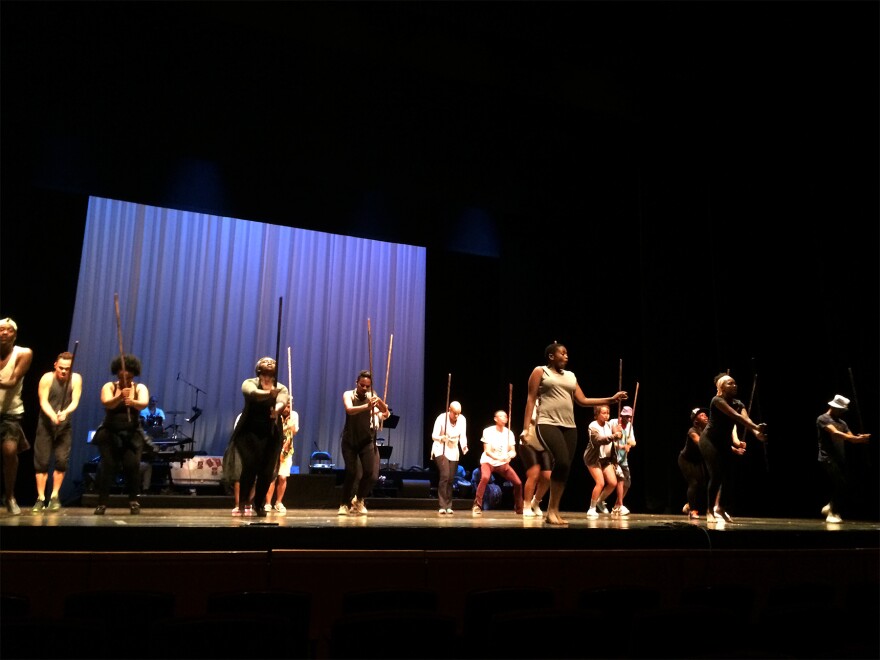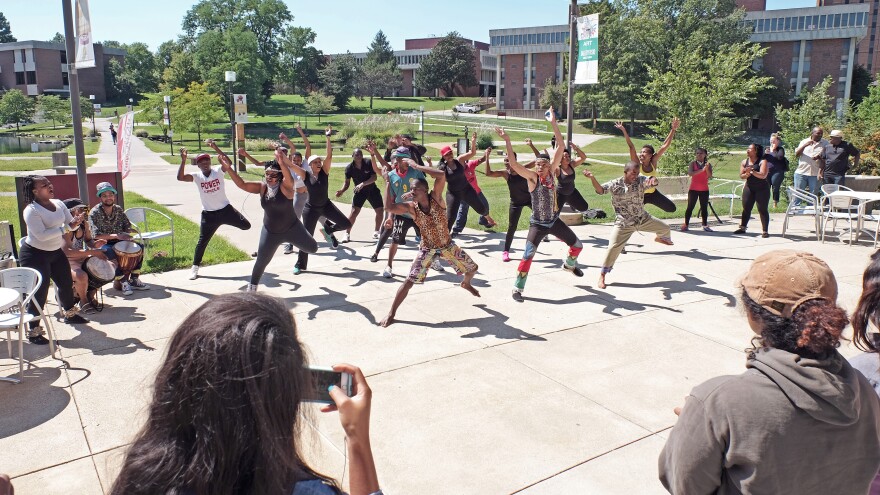When NiyiCoker considers Africa’s contributions to modern music, he can’t help but think of Miriam Makeba, the acclaimed South African singer and activist who introduced international audiences to the continent’s sounds.
It’s impossible to separate Makeba’s art from her activism, said Coker, a professor of African-American studies at the University of Missouri-St. Louis. In a life that was heroic and tragic, the singer suffered three decades of forced exile from her homeland for challenging its racist policies and injustice.
When Makeba died in 2008, she left an incredible legacy, said Coker, a native Nigerian who wrote “Miriam Makeba: Mama Africa the Musical.” Its first performance in the United States takes place Thursday at the Touhill Performing Arts Center.
“She always kept her eye on the fact that the world would be a better place, could be a better place, you know,” Coker said. “So I hope we see that, that we don’t let her down. You know this is someone who really believed in us.”
Produced with an international cast of South African and local performers, the musical honors Makeba’s art and how she inspired people to stand up against injustice in their own communities.
While developing the project over the last five years, Coker gained the Makeba family’s blessing, biographical help and licensing.
He cast the musical as broadly as possible, including actors of various ethnicities, townships and skills. The project had its first run in South Africa last year, with a South African cast.
As a rising musical star, Makeba was undaunted by the apartheid government and challenged racial inequality. When she spoke against apartheid in a 1960s documentary, South African officials barred her from the country and banned her music.
In a 1969 interview with a Finnish journalist, Makeba explained the difficult balance of her personal life, politics and music.
“We as artists should never close our eyes to what is happening around us,” she said. “Therefore, coming from South Africa, my life was affected by my environment there, and the songs that I sing are just about my everyday life.”
Coker said Makeba’s resolve during that period drives much of the play’s narrative.
“She said, ‘Okay, I will never be able to go home, but there’s a reason that I won’t be able to go home, because I want a better life for those people who are there. I want a better life for people around the world,’” he said.
The play largely takes place outside of South Africa. In the United States, Makeba decried the Jim-Crow era policies that institutionalized racism. For some time, she was married to Stokely Carmichael, a civil rights activist and member of the Black Panthers.
She later moved to Belgium, where she testified against the South African government before the United Nations, continued to perform and advocate for basic human rights.
During her exile, Makeba’s mother, daughter and two grandchildren died.
She was not able to return to South Africa until 1990 after the country held free elections and Nelson Mandela became president.
On stage, a mature Makeba recounts her struggles to a journalist, with each story illustrated by flashbacks and song.

Jennifer Pau plays the mature “Mama Africa” Makeba, while Simangele Mashazi plays the singer at an earlier age as the musician establishes her career. Both are thrilled to play Makeba and agree that taking the role of “Mama Africa” has brought them closer to Makeba’s struggle for a free South Africa — and her individual humanity.
Pau was struck by Makeba’s trailblazing status in the music industry.
“She was a mother struggling to be a mother, an artist. A woman who discovered everything about the music industry,” Power said. “It showed me that it has never been easy for her being a woman in this industry.”
For Mashazi, the role helped her come to terms with Makeba’s greatness: the expression of strength in the face of fear.
“I don’t think she wasn’t scared. I think she was scared a lot of times,” Mashazi said. “The people that go and overcome their fears, the people that say ‘I’ll try that even though I am scared,’ they’re the ones that change the world."
The musical is already slated to return to South Africa's premier performing arts space, Artscape Theatre Centre in Capetown, early in 2017.
The play opens at 7:30 p.m. Thursday at the Touhill, and runs through Sunday.




